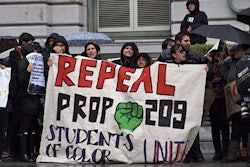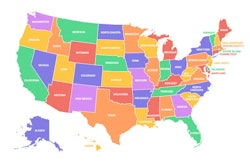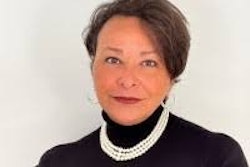A new report from the American Association of State Colleges and Universities reveals that while a strong majority of alumni from member institutions are satisfied with their education and careers, significant gaps remain in career preparation, gender pay equity, and student debt management.
"Leveraging Alumni Voices to Drive Value: A Starter Kit for Campus Leaders" Dr. Charles L. Welch
Dr. Charles L. Welch
The findings show 84% of respondents were satisfied with their educational experience and 83% were satisfied with their current careers. Additionally, 78% expect to earn more than the household they grew up in, suggesting upward economic mobility for many graduates.
However, the report also identified critical areas where institutions fall short. Only 43% of alumni said their institution invested in their career, and just 49% reported receiving help creating a career plan. Among those who received career advice, 86% found it helpful, suggesting unmet demand for career services.
The data revealed a significant gender wage gap: 81% of male alumni reported their salary covers their bills, compared to only 69% of female alumni—a 12-percentage-point disparity the report notes requires systemic intervention.
Student debt emerged as another concern. Sixty-two percent of respondents incurred student loan debt while earning their degree, but only 38% described that debt as manageable. When asked whether their education was worth the debt, 43% said yes, 27% said no, and 10% were unsure. Alumni who questioned the value cited insufficient salaries relative to debt, inability to pay off loans, and working in fields unrelated to their degrees.
"These insights highlight a critical opportunity for institutions to strengthen postsecondary value by reducing the long-term burden of student debt," the report states.
The participating institutions were California State University, Dominguez Hills; East Tennessee State University; five Indiana University regional campuses (East, Kokomo, Northwest, South Bend, and Southeast); Oakland University in Michigan; and the University of Maryland Eastern Shore.
Leticia Maldonado, AASCU's director of postsecondary value initiatives and report author, said the study provides institutions with a unique opportunity to understand alumni perspectives years after graduation.
"These insights will go a long way toward helping colleges and universities advance value on their campuses," she said.
AASCU President and CEO Dr. Charles L. Welch pointed to the report's strategic value.
"By listening to the voices of their alumni, institutions develop a clear picture of their strengths and areas of development so they can improve post-graduation results for years to come," he said.
The report, supported by the Gates Foundation, includes practical steps for institutions to conduct their own alumni research, including building cross-functional steering committees, selecting appropriate survey tools, and developing multiyear data strategies.
Alumni motivations for pursuing and completing degrees were primarily career-focused—62.8% cited career success as a top motivation, followed by financial gain at 55.7% and intellectual development at 46.4%. Social support, family, and faith also played significant roles in persistence, with 40% citing these factors.
The report positions alumni data as a strategic asset for demonstrating institutional value to prospective students, policymakers, and donors, while also identifying programmatic improvements needed to close gaps in career preparation, gender equity, and affordability.


















